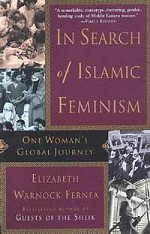Postscripts
Why has the National Endowment for the Humanities awarded $50,000 to Southwest Texas State University, with the possibility of awarding the university $5 million more.
By Clay Smith, Fri., Dec. 17, 1999
At this point in the process, each of the 16 institutions has been awarded $50,000 to study how they might utilize the exciting but daunting prospect of hosting a regional humanities center. Each center will be funded by $5 million from the NEH, with the 10 regional institutions that end up hosting the centers each expected to match that with $15 million. The NEH has divided the United States into 10 regions for the purpose of the initiative; the Southwest region includes Texas, Arizona, New Mexico, and Nevada. One other university from the Southwest, Arizona State in Tempe, also qualified.
"One of the two of us will be designated the Southwest Humanities Center and get $5 million," says Mark Busby, the director of the Center for the Study of the Southwest, which is the entity at SWT that actually made the application to the NEH. "One of the main things that we'll be doing for the year is putting together a fundraising proposal that says, 'If you give us $5 million, this is how we're going to raise the $15 million that we have to raise,'" Busby explains. "And it's probably really going to come down to that between us and ASU, which one of us looks like we can do it."
What persuaded the NEH to designate SWT one of the qualifying institutions? Busby attributes the honor to the two cornerstones of regional studies at SWT, the Southwestern Studies program that has been in place since 1990 and the Southwestern Writers Collection, in existence since 1987. "[UT's] HRC has wonderful things, but the HRC is gigantic, it's broader than just the region," Busby says, "whereas SWT decided to make its name as a regional university focusing on regional studies. And so the Southwestern Writers Collection is sort of the centerpiece of that, and it's broadly Southwestern. There are other places that have some Southwestern or Texas materials, but the Southwestern Writers Collection is almost perfect for what the NEH was interested in, something that wasn't just Texas and that was dedicated to the broader region ... called the Southwest.
"The grant that we put in for we said, 'We will design a governing body and an advisory board and this is how we'll go about designing it' but we didn't say what the design would be. Now we have to do it," Busby acknowledges. One of Busby's goals is to create a coordinated academic program so that a student could take a course in Austin, San Marcos, Albuquerque, Tempe, and Las Vegas, "and that requires a lot of coordination, that requires a lot of state educational bodies to approve that kind of a program, so there's a lot of work there, but it could be wonderful," he says. To that end, Busby needs to acquire "letters of support" from the various institutions that he hopes will participate in the center if it were awarded to SWT, and in an early show of support, he has already heard from Don Carleton, the director of UT's Center for American History, who has pledged to work with Busby on all the planning that will need to be done.








